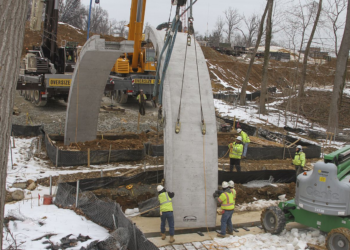The people of Kenya are bucking a worldwide trend of antimigrant polemics and actions. With the recent launch of a landmark refugee integration initiative, they are modeling a compassionate and respectful embrace of the many “strangers” in their midst.
Large-scale refugee in-migration to this East African country had been a feature since the early 1990s. An island of relative stability, it hosts more than 800,000 refugees, mainly in two sprawling encampments. Each month, several hundred more civilians arrive, fleeing Sudan where rival militaries have been waging war since April 2023.
The government’s new Shirika initiative marks a shift from the conventional “encampment” approach to what is often seen as a burdensome humanitarian obligation. The new strategy implicitly recognizes the determination, ingenuity, and survival skills of refugee populations as potential contributions to local and national development. Shirika therefore seeks to transform camp areas into formal towns with infrastructure that will foster economic growth and eventual self-reliance for refugees and host communities.
“Kenya is showing the world that a story of cooperation, inclusion and hope is not only possible, but also necessary and of advantage to all,” said United Nations High Commissioner for Refugees Filippo Grandi.
Significantly, this new approach has wide support among Kenya’s citizens. According to a Stanford University survey, more than two-thirds of respondents support increasing refugees’ access to work permits, financial resources, and social services. Nearly 60% believe refugees should be allowed freedom of movement.
Ordinary citizens express empathy as well as appreciation for the entrepreneurial spirit of refugees. “They’re humans and they’re supposed to be helped. … It’s [about] brotherhood,” said one respondent. “The interaction they bring to our country will help us upgrade by bringing new ideas and different ways of managing business,” said another.
Shirika’s extended time frame – which runs through 2035 – may be a tacit acknowledgment that quick fixes are unlikely. With their lives upended, many refugees are still in distress and lack education or workplace skills. Rural Kenyans struggle to eke out a living in drought-prone areas around the camps. And there are demands for more grassroots consultation.
But, in the words of President William Ruto, Kenya’s “bold, homegrown solution” can offer a new foundation on which to build “hope and dignity for refugees, and give host communities due recognition.”







